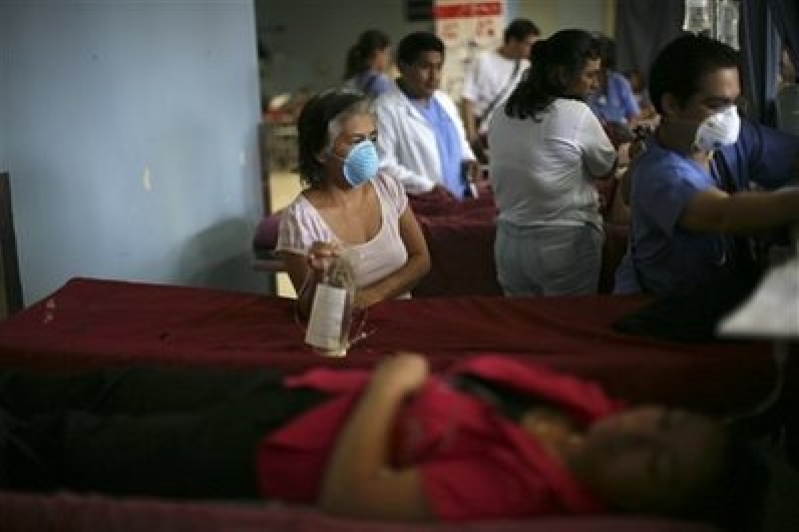
The alert level for the H1N1 “swine flu” has been raised to the highest notch, U.N. health officials announced Thursday, marking an official start of the first global flu pandemic in more than four decades.
“We are in the earliest days of the pandemic,” Dr. Margaret Chan, director-general of the World Health Organization, stated in the announcement.
And while the number of deaths worldwide is thus far small and the overwhelming majority of patients experience mild symptoms and make a rapid and full recovery – often in the absence of any form of medical treatment – Chan said the “greatest concern” is that they don’t know how the virus will behave under conditions typically found in the developing world.
To date, the vast majority of cases have been detected and investigated in comparatively well-off countries.
“Although the pandemic appears to have moderate severity in comparatively well-off countries, it is prudent to anticipate a bleaker picture as the virus spreads to areas with limited resources, poor health care, and a high prevalence of underlying medical problems,” Chan stated.
In a statement released shortly after WHO’s announcement, Christian humanitarian organization World Vision echoed the director-general’s assessment, and joined humanitarian specialists in calling on governments and health authorities globally to strengthen poor communities' access to primary health care and protect the most at risk.
Impoverished people in developing countries are especially vulnerable to outbreaks given the prevalence of existing pandemics and weak health systems, warned World Vision, which works in 100 countries.
"With limited access to health services, extreme poverty, high malnutrition rates, and the slower-burning pandemics of HIV & AIDS, tuberculosis and malaria already stretching society's coping mechanisms, the poor are more at risk than the general population," said Stefan Germann, World Vision International's Geneva-based director for global health partnerships.
"Efforts to mitigate this pandemic should pay particular attention to this and work quickly to boost community-level health care essential to avoiding extremely high mortality rates, with or without a flu pandemic," Germann added.
Though Swiss pharmaceuticals company Novartis AG said Friday it has successfully produced a first batch of swine flu vaccine weeks ahead of expectations, World Vision warned that even providing vaccines to poor countries will have limited benefit unless local health access is strengthened and systems in place to immunize, monitor and treat people.
In recent weeks, World Vision has urged government officials at the annual World Health Assembly in Geneva to re-establish primary health care as a chief priority for development.
This, the organization reported, aligns with commitments these leaders have already made to reduce child and maternal mortality by 2015.
Already, nearly 10 million children and mothers die each year from avoidable causes such as pneumonia, diarrhea and malaria as many countries fail to focus on community-based approaches and deliver on their global health promises, World Vision added.
And now that the H1N1 flu is officially a pandemic – meaning that the flu’s spread is unstoppable – the aid group's health and policy specialists are encouraging authorities and staff to remain vigilant.
World Vision is also urging people traveling to affected countries to observe all public health measures and practice adequate precautions regarding personal and respiratory hygiene practices.







